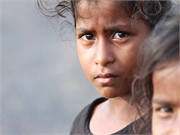Surgery Is Far Too Often Fatal for Kids in Poor Nations

TUESDAY, Dec. 24, 2019 (HealthDay News) -- Kids in poor countries are up to 200 times more likely to die after surgery than kids in rich nations, a new study finds.
As the need for pediatric surgery grows in poor and moderate-income countries, it leaves 2 billion children without access to safe surgery and anesthesia, said researcher Dr. Mark Newton. He's a pediatric anesthesiologist at Monroe Carell Jr. Children's Hospital at Vanderbilt University, in Nashville, Tenn.
In fact, in these countries, children are 50% of the population and as many as 85% need an operation before they're 16.
"Most low- and middle-income countries have a severe shortage of pediatric surgeons and anesthesiologists," Newton said in a Vanderbilt news release.
Newton's team found that in East Africa:
- Death after pediatric surgery is 100 to 200 times greater than in high-income countries.
- When the Safe Surgery Checklist isn't used, deaths increase over 200%.
- More deaths occur when surgery is done at night and on weekends.
- Deaths are higher in primary care hospitals than in secondary or tertiary care hospitals.
For the study, the researchers looked at child deaths after surgery in 24 Kenyan hospitals. In all, they looked at just over 6,000 cases.
The investigators found that death rates were nearly 1% at 24 hours after surgery, slightly more than 1% at 48 hours after surgery and nearly 2% seven days after surgery.
The report was published in the December issue of the journal Anesthesiology.
More information
For more on health care around the world, head to the World Health Organization.

The news stories provided in Health News and our Health-E News Newsletter are a service of the nationally syndicated HealthDay® news and information company. Stories refer to national trends and breaking health news, and are not necessarily indicative of or always supported by our facility and providers. This information is provided for informational and educational purposes only, and is not intended to be a substitute for medical advice, diagnosis, or treatment.

